Vice-President’s report
I hope you are all keeping well and busy. Last month I thanked the 2019–20 committee for their fantastic contributions in running Editors Victoria over the past 12 months.
Now it’s time to thank all of you who attended the Annual Branch Meeting (ABM), held by Zoom on Thursday 16 July. We were concerned about the timing, but in the end we set a new land-speed record for this meeting. To those who may have felt short-changed, please be assured the short duration was down to inexperience rather than any lack of desire to celebrate the significant achievements of the past year. As the subcommittee reports published this month show, the committee members of Editors Victoria are to be congratulated for their dedication and great output.
We are excited to welcome our new President, Stephanie Holt, and Secretary, Margaret Trudgeon, and our volunteers to subcommittees, Imogen Bannister, Dalida Boustead, Naomi Johnson and Karina Smith. The executive committee for 2020–21 is:
President: Stephanie Holt
Vice-President: Jane Fitzpatrick
Secretary: Margaret Trudgeon
Budget Officer: Marnie Hannagan
Communications Officer: Bridget Blair
Events Officer: Marie Pietersz
Freelance Affairs Officer: Susan Pierotti
Professional Development Officer: Claire Kelly
It was great to follow the ABM with Louisa Fitzhardinge’s Highlights from Comma Sutra. It’s been a long time since I had so much fun waving a dictionary at a computer screen.
This month we also welcome our new ex-officio Student Adviser for 2020–21, Cassandra Wright-Dole. Cassandra introduced herself in a new member profile last month.
As you are probably aware, the next accreditation exam is scheduled for Saturday 5 December 2020. A reminder to all Victorian candidates that you can now register for online preparation workshops.
By the time this newsletter is published, we will have held our first online technical workshop: Advanced macros, with Kevin O’Brien. And our Zoom networking events (aka Zoom cuppas) continue to be held regularly, providing the chance to network and share resources and ideas. If you haven’t made it to one yet, I hope you will soon, and I hope to see you there.
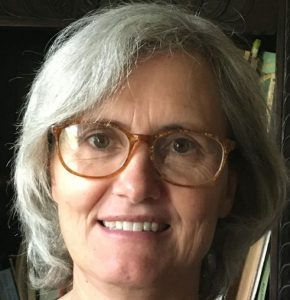
Jane Fitzpatrick
edvic.vicepres@iped-editors.org
AGM committee reports
Read reports here. [PDF, 286KB]
Meet our new President: Stephanie Holt
As the incoming Branch President, it’s a pleasure to write this brief intro for IPEd’s Victorian members. I’m a long-term member and an enthusiastic participant in Editors Victoria events and activities for many years. I’ve even had a hand in IPEd’s accreditation exams and judging its editing prizes. But this is my first time with a formal role on the Victorian committee.
I fell into editing thirty-something years ago, but over the past 20 years found my focus increasingly on teaching — preparing new editors to enter the profession, exploring new skills and scenarios for a changing industry and opening the eyes of aspiring writers to the joys, challenges and importance of editing.
When I first started teaching, I was a little embarrassed not to have been formally trained and not to have worked for a ‘real’ publishing company, as I thought. I’d cut my teeth with community-based publishers and projects (Sybylla Feminist Press; a couple of fun but short-lived art projects). Then I’d settled into work with community legal centres, happiest when writing and publishing (posters, pamphlets, booklets). A combination of admin and editing experience opened the door to work with a specialist art publisher, launching one ambitious new magazine, reviving another and eventually producing beautiful art books. And from there I went to Meanjin for three years. Some fascinating workplaces, but not a traditional book publisher among them.
I stopped being embarrassed about that background as I got more involved in the profession. Editors come from so many different backgrounds, learn and train in so many ways, springboard into editing from so many other careers and bring such fascinating depths and diversity of expertise to their work.
I recently left RMIT’s wonderful professional writing and editing programs with plans to beef up the freelance practice I had on the side. And spend more time in the garden. And enjoy the footy, music, museums. Do some travelling.
Well, coronavirus has put the brakes on much of that, but Editors Victoria beckoned. The virus is shaking up our working lives, but also showing us new ways of working. And we editors — storytellers, persuaders, communicators — will be as important as ever to contribute to how, and what, we rebuild.
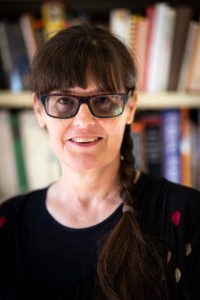
Stephanie Holt
edvic.president@iped-editors
[Photo credit: Steve Womersley]
Meet our new Secretary: Margaret Trudgeon
This is my second turn on the committee. The first time was back in 1995 when, as a recent graduate, I took on the role of training officer, which I enjoyed for two years, getting to choose the speakers and the biscuits. I took part in organising the 21st anniversary of the Society of Editors (as it was known), with Susan Keogh as president, followed by Renée Otmar. They were the days when the idea of accreditation for editors was first being talked about and investigated. At the time I was working at Addison Wesley Longman (AWL — now Pearson Australia) as an academic editor; before that I worked at Swinburne University, first as a graphic designer, then as a desktop publisher (in the early days of the Mac) and finally as the course book editor.
In 1998 the section I worked in at AWL was moved to Sydney following a takeover, so with severance pay in hand I decided to give it a go on my own and discovered the ups and downs of life as a freelance editor — the feast and famine of work, and the freedom to work when I wanted, while also being a bit tied to the desk. Around five years later I had a baby — he’s now 16 and taller than me. Freelancing gave me lots of flexibility as my son grew up, allowing me the freedom to spend time with him and still earn a reasonable income. I’ve worked on many books and other projects over the years — many textbooks, art books, Dr Who and Phantom diaries and some fiction books — adapting to a life that has become increasingly computer-based, but a bit more connected, thanks to social media, the internet and Zoom. These days I find myself editing a lot of nursing books, despite not being a nurse.
Last year I decided it was time to throw my hat back into the ring and make some new connections, as well as give something back to Editors Victoria, of which I’ve been a member for more than 25 years. I’m really looking forward to the challenges of my new role as Secretary and being part of the committee again.
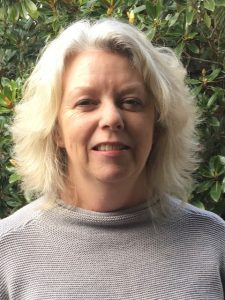
Margaret Trudgeon
edvic.secretary@iped-editors.org
New members
EdVic is pleased to welcome members who have joined or upgraded since the last issue of Gatherings:
Welcome to our new professional member: Farideh Louise Coory.
And to our new student members: Jared Trevor Prentis, Ashlea Georgia Spierings, Clara Grey Murphy, Daniel McSweeney and Joanne Therese Bradford.
We look forward to seeing you at our workshops and events and encourage you to make the most of IPEd’s networks for news and support.
New member profile
Name: Freedy Coory
Q: How long have you been an editor and how did your career begin?
A: My first editing job was as managing editor at an interior architecture magazine based in Sydney in the early 1990s; that led to self-publishing and editing a nutrition book several years later. Proofreading, however, started at the beginning of my career as a legal secretary and has continued to feature in every role.
Q: What type of editing makes up most of your work?
A: Copyediting and proofreading.
Q: What aspect of the profession do you find most challenging?
A: Deadlines are often the most challenging. I imagine I’ll be faced with different challenges as I embark upon my new freelance copyediting and proofreading business.
Q: How would you like to build your skills as an editor?
A: I intend to complete professional development courses, particularly those with a focus on structural editing, and eventually take the accreditation exam.
Q: What do you like about being a member?
A: Membership for me is about community, like-minded people, mentoring and the relevance it has to my career, in addition to the myriad ‘extras’ such as webinars.
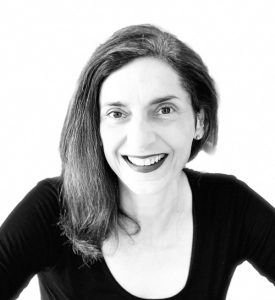
Freedy Coory
[Photo credit: Sophie Rasheed]
Improve your editing skills through mentoring
In this time of COVID-19, have you thought of getting some mentoring or even becoming a mentor? The program coordinators have access to an extensive list of professional IPEd editors who are in the IPEd Mentoring Program. Their knowledge covers many subjects and spheres. Also, the coordinators are always on the lookout for more mentors. This might be the perfect opportunity to spread your wings.
Mentoring can also be a way of getting personalised assistance when preparing for the accreditation exam. The exam is scheduled for Saturday 5 December 2020, but it’s not too early to start your preparation and study.
Using tailor-made case studies, the coordinators of the IPEd program plan to run two free online information workshops a year to tell intending mentors and mentees what’s involved in a mentoring relationship.
Maryna Mews, the IPEd Victorian Mentoring Coordinator, can also run free information sessions by Zoom for Victorian editors.
Mentoring is where one individual supports, encourages and advises another, based on any of their knowledge and life experience that is relevant to the mentoring theme. It provides a two-way learning experience for mentor and mentee, which can encourage deep satisfaction and numerous benefits in many personal, career, organisational and developmental areas.
For more information, contact the IPEd Victorian Mentoring Coordinator, Maryna Mews, at edvic.mentorship@iped-editors.org or go to IPEd Mentoring Program on our website.
How genre fiction changed the way we read
Thirty-six members signed up for EdVic’s first online member meeting to hear Kate Cuthbert talk about ebooks and romance fiction.
Kate is an award-winning book reviewer, author and critic with a decade in trade publishing, notably initiating the Escape Publishing imprint of Harlequin Australia.
Kate provided a detailed and fascinating historical journey of how three components came together to bring about today’s digital publishing: the race for the lightest personal computer, the often-altruistic development of a personal library and genre fiction.
The use of electronic text to provide online entertainment, the rapid advancement of personal electronic devices and the demographic using these various modes for accessing this world of entertainment set the stage for publishing novels in the form of ebooks, readable on flat-screen computers and other electronic devices.
From the 1940s to 2020, romance fiction — a fiction that focuses on a romantic relationship and guarantees an emotionally uplifting ending — has been a driving force in publishing, and writers have been at the forefront of what readers want, even if commercial publishers aren’t ready to publish it. It’s only natural that this demographic of readers (mostly women) also drove the rise of ebooks.
In Australia it has traditionally been hard to find romance fiction in bookshops, so readers have had to seek new or favourite titles through overseas booksellers or in ebook formats.
A time of lively questions and answers followed Kate’s talk on the world of romance as one of the most popular genres in ebook format.
For lovers of romance genre fiction, Kate provided a list of recommended romance titles and authors:
- The hating game, by Sally Thorne
- rural romance: Jennie Jones, Victoria Purman, Karly Lane, Tricia Stringer, Charlotte Nash, Lily Malone
- Get a life, Chloe Brown, by Talia Hibbert
- Take a hint, Dani Brown, by Talia Hibbert
- Red, white & royal blue, by Casey McQuiston
- rural romantic suspense: Sarah Barrie, Bronwyn Parry
- Act like it, by Lucy Parker
- historical fiction: Sarah McLean, Courtney Milan, Anne Gracie.
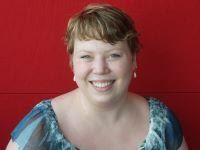
[Photo credit: Kate Cuthbert]
Marie Pietersz edvic.events@iped-editors.org
